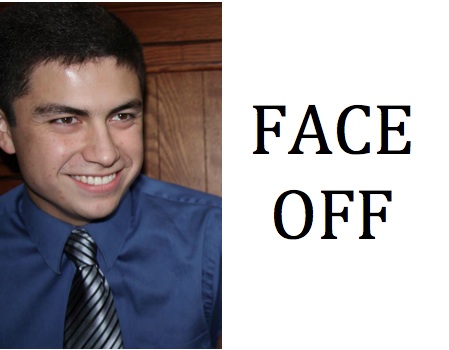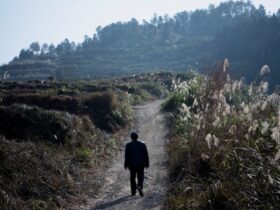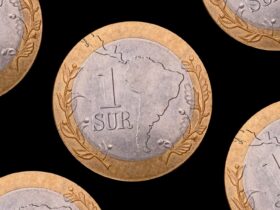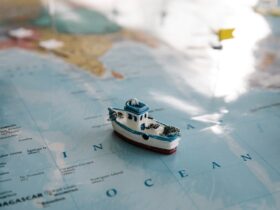At any reasonably civilized and well-attended international affairs conference, one of the issues bound to make an appearance is the concept of “sustainable development.” A controversial and nebulous term, most supporters of sustainable development generally agree that human development ought to be reconciled with resource conservation, ultimately to the point that no resources are used in excess or wasted. Harmony between society and nature is to be treasured, and it is expected that a society run on sustainable development will find that harmony.
Beyond this, the definitions are as varied as the proponents of the movement. Some campaign for sustainable development in developing countries such as India and Brazil hoping that, in turn, these countries can bypass the polluting industrial periods the West went through. Others support the placement of sustainable development measures in advanced industrial economies to balance out their resource intakes and pollution outputs by national or international policy. Still others are in favor of a far more organic role, with sustainable development occurring locally at the level of businesses and communities and working its way up the ladder of necessity on an ad hoc basis. In short, the practices mentioned above are as varied as the imposition of taxes on emissions and carbon caps, land preservation efforts, and everything in between. Sustainable development borrows much from the principles of environmental protection established earlier in the 20th Century and seeks to apply them directly to economic growth.
Regardless of the nobility and desirability of such a silver bullet to save the Earth, the truth of development is nowhere near as simple as depicted by sustainable developers. Consider the notion that sustainable development is in fact a paradox, or rather an oxymoron.
Sustainability implies a sense of permanency and renewability, and brings to mind small villages rotating crops around various fields bringing in a steady crop and thus a steady income supply. This same idyllic picture can be applied to almost any other commodity, from fish to timber to fruits to cattle. This example cannot, however, be applied to the nonrenewable resources of the interior of the Earth, including fossil fuels and precious minerals. Not surprisingly, the nonrenewable resource policies sustainable development supporters advocate border on complete abstinence.
In marked contrast to this is development. Development implies a sense of forward-moving change, of increasing utility and complexity, of expansion. A brief survey of history seems to reveal a general and sensible pattern; those nations and peoples who were the most powerful, prosperous, and healthy were those who expanded and developed, either in terms of territory, societal and political complexity, or status. And in every case, this growth was fueled by the efficient consumption of natural resources. The prosperous periods of Chinese, Islamic, and European Civilization all mark their periods of intense and unsustainable resource use; yet these also marked those societies’ eras of political consolidation, golden governance, high culture, prosperous markets, and general national greatness. Undoubtedly innumerable issues are at play in the development of a golden age, but underlying all must inevitably be a stable resource base and the productive use of it.
This may seem to be a materialistic analysis devoid of reference to the human spirit. I believe that it does seem to be true that the quality of life of any nation is, to a large degree, controlled by its observance of the abstract ideas of freedom, tradition, and innovation. However, there is a quantitative material foundation which must be set before any of these great social virtues can be observed, and so long as that quantity does not spill into decadence, its continued ascendance assures a better quality of life for citizens.
Sustainable development advocates will argue that society need not continue progressing, that a balance and harmony can be wrought out, and humans can continue to advance on the efficient use of resources alone. While this may be true of communities at the smallest level, I highly doubt that it can be applied at anything higher than the individual or, at most, the nuclear family unit. History seems to tell us that the nature of man is to expand – to improve – and from this expansion, all the dramas and stories of human life flow.
Indeed, when considering the implications of zero growth, an eerie economic picture comes to mind. So far as can be told, it appears that every human polity with a successful history has been based on growth and expansion of some sort, and therefore of continued and unabated resource consumption. But sustainable development, in its perfect model, demands the complete efficiency of resource use, a social harmony with nature recycling all. Thus there is no growth in wealth, as nothing more than is needed for survival is used; and no growth in wealth, in economic terms, is stagnation. In a period of stagnation, societies do not advance, do not grow, and do not improve the lives of their members. They merely exist from day to day. If we direct our policies towards sustainable development, we essentially steer our plans with a golden ideal of zero growth as our guide.
All this being said, I am very much an environmentalist. Once upon a time as a kid, I drew up a proposal for the federal government to buy up all remaining undeveloped private land, fence it off, and call it “America National Park.” Boy Scouts does that to you.
In all practical matters, however, I support environmental protection and conservation 100%. I like the system of management practiced by agencies such as the Forest Service, the Fish and Wildlife Service, and the Bureau of Land Management, and think we ought to continue and expand it into light international law, particularly for fishery preservation. I favor many of the environmental movement’s earliest endeavors, from the Clean Air Act to legislation against riverine pollution to the Endangered Species Act to the establishment of the Environmental Protection Agency. I am not sure that I believe as passionately in our ability to stop global climate change as many of my colleagues, but I look forward to the day when every vehicle runs on electric power generated at clean nuclear plants. Ecology enchants me, tree-planting and trail-building service projects excite me, and there is nowhere I love to be more than a national park.
But all this being said, prudence and moderation is necessary, for we cannot simply pick environmental protection over economic development, as this goes against the human work ethic, and indeed all of history. And we cannot knowingly take a contradiction in terms that cannot be made to work, and then attempt to make it work. Sustainable development is this type of term – a chimera – and the fact that its successes are scant seems to attest to its impotence. It would be preferable for humans to seek balance with the environment in another way: to accept that growth brings with it a heavy price to nature, and to offset that price not by ceasing growth, but by actively improving nature where possible – through greening projects, resource conservation, environmental protection, and preservation where possible amidst economic growth. These represent the only types of sustainable development compatible with the basic, fundamental human condition.
The views expressed by the author do not necessarily reflect those of the Glimpse from the Globe staff and editorial board.







